Filter by

Digital health care outside of traditional clinical settings: ethical, legal,…
A book like this is the result of the hard work of many. We thank our student line editors for their meticulous work.1 We are grateful to Laura Chong and Chloe Reichel for their administrative support in organizing the conference that gave rise to this book. We are also grateful for Laura Chong’s hard work shepherding all the many pieces of this manuscript. We thankfully acknowledge the …
- Edition
- -
- ISBN/ISSN
- 9781009373234
- Collation
- xvii, 196 p ; 24 cm
- Series Title
- -
- Call Number
- 610.285 COH d
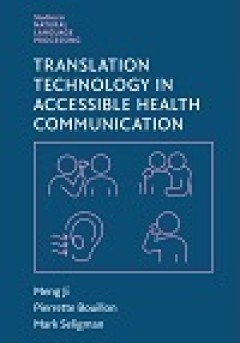
Translation technology in accessible health communication
Meng Ji, Pierrette Bouillon, Mark Seligman ; with contributions from Bastien David, Magali Norre?, Irene Strasly, Herve? Spechbach, Johanna Gerlach, Lu?cia Morado Va?squez, Silvia Rodri?guez Va?squez.
- Edition
- -
- ISBN/ISSN
- 9781108837378
- Collation
- xiii, 212 pages; illustration
- Series Title
- Studies in natural language processing
- Call Number
- 610.1 JI t
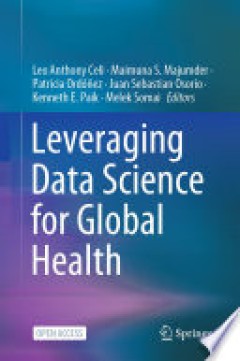
Leveraging data science for global health
This open access book explores ways to leverage information technology and machine learning to combat disease and promote health, especially in resource-constrained settings. It focuses on digital disease surveillance through the application of machine learning to non-traditional data sources. Developing countries are uniquely prone to large-scale emerging infectious disease outbreaks due to di…
- Edition
- -
- ISBN/ISSN
- 9783030479947
- Collation
- XII, 475 p
- Series Title
- -
- Call Number
- 362.10285 LEO l
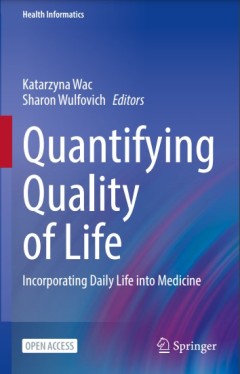
Quantifying Quality of Life
This open access book presents the rise of technology-enabled methods and tools for objective, quantitative assessment of Quality of Life (QoL), while following the WHOQOL model. It is an in-depth resource describing and examining state-of-the-art, minimally obtrusive, ubiquitous technologies. Highlighting the required factors for adoption and scaling of technology-enabled methods and tools for…
- Edition
- 6
- ISBN/ISSN
- 9783030942120
- Collation
- -
- Series Title
- -
- Call Number
- 610.285 QUA K
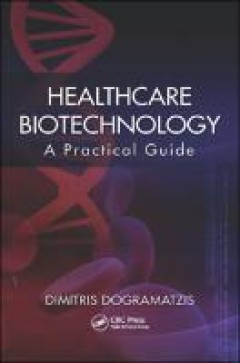
Healthcare biotechnology : a practical guide
Foreseeing and planning for all of the possibilities and pitfalls involved in bringing a biotechnology innovation from inception to widespread therapeutic use takes strong managerial skills and a solid grounding in biopharmaceutical research and development procedures. Unfortunately there has been a dearth of resources for this aspect of the field.
- Edition
- -
- ISBN/ISSN
- 9781439847466
- Collation
- vii. ;ill. :661 p.
- Series Title
- -
- Call Number
- 615.19. DIM h
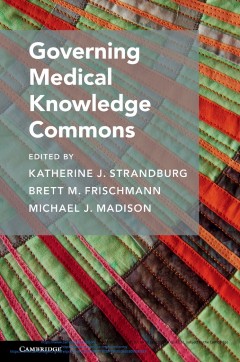
Governing medical knowledge commons
Governing Medical Knowledge Commons makes three claims: first, evidence matters to innovation policymaking; second, evidence shows that self-governing knowledge commons support effective innovation without prioritizing traditional intellectual property rights; and third, knowledge commons can succeed in the critical fields of medicine and health. The editors' knowledge commons framework adapts …
- Edition
- -
- ISBN/ISSN
- 9781316544587
- Collation
- viii, 429p. : ill.
- Series Title
- -
- Call Number
- 610.285 GOV g
Across space and time: papers from the 41st Conference on Computer Applicatio…
This volume presents a selection of the best papers presented at the forty-first annual Conference on Computer Applications and Quantitative Methods in Archaeology. The theme for the conference was "Across Space and Time", and the papers explore a multitude of topics related to that concept, including databases, the semantic Web, geographical information systems, data collection and management,…
- Edition
- -
- ISBN/ISSN
- 9789089647153
- Collation
- 515 pages : illustrations, maps ; 31 cm.
- Series Title
- Computer applications and quantitative methods in archaeology
- Call Number
- 930.1028 ACR a
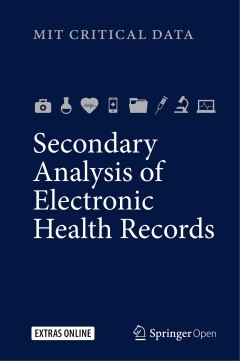
Secondary analysis of electronic health records
This book trains the next generation of scientists representing different disciplines to leverage the data generated during routine patient care. It formulates a more complete lexicon of evidence-based recommendations and support shared, ethical decision making by doctors with their patients. Diagnostic and therapeutic technologies continue to evolve rapidly, and both individual practitione…
- Edition
- -
- ISBN/ISSN
- 9783319437422
- Collation
- xxi, 427p. : ill.
- Series Title
- -
- Call Number
- 610.285 MAS s
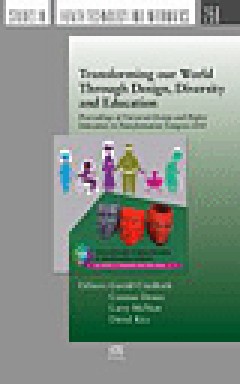
Transforming our world through design, diversity and education : proceedings…
Good design is enabling, and each and every one of us is a designer. Universal Design is widely recognized an important concept that should be incorporated in all person-centred policies. The United Nations Convention on the Rights of Persons with Disabilities (UNCRPD) clearly stipulates that the most effective way of delivering on the promise of an inclusive society is through a Universal Desi…
- Edition
- -
- ISBN/ISSN
- 9781614999232
- Collation
- xvi, 885 p.; 22 cm.
- Series Title
- Studies in Health Technology and Informatics, Vol. 256
- Call Number
- 745.4 TRA t
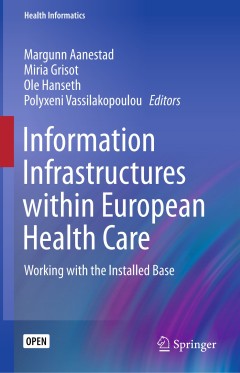
Information infrastructures within European health care : working with the in…
This book consolidates experiences from across Europe on the design, development, implementation and evolution of inter-organisational information infrastructures for healthcare. It provides insights with practical relevance for those involved or interested in the planning and implementation of such infrastructures and includes 11 empirical cases on the introduction of core infrastructural arra…
- Edition
- -
- ISBN/ISSN
- 9783319510200
- Collation
- vi, 263p. : ill.
- Series Title
- -
- Call Number
- 610.285 INF i
 Computer Science, Information & General Works
Computer Science, Information & General Works  Philosophy & Psychology
Philosophy & Psychology  Religion
Religion  Social Sciences
Social Sciences  Language
Language  Pure Science
Pure Science  Applied Sciences
Applied Sciences  Art & Recreation
Art & Recreation  Literature
Literature  History & Geography
History & Geography